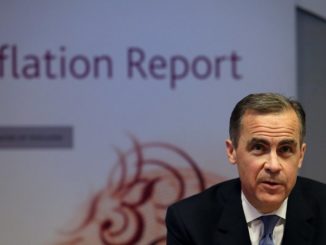
I have been diverted from writing further essays in the Economic Perspectives series as I am assembling the existing essays in a book designed to demystify the science of economics. But occasionally the temptation to write another essay is overwhelming, and, spineless sucker that I am, I succumb to it yet again! So here we are, with a Labour administration that guarantees a supply of material that I find irresistible.
The delusion of job creation
The rationale of “job creation” is trotted out as justification for any infrastructural plan or project regardless of its merits by reference to any objective criterion. Would most citizens actually vote for it? Would they spend their own money to achieve it? (Which is what is forced upon them anyway, since the state has no money of its own!) And how many grandiose plans will satisfy the Chancellor’s pro-growth imperative? Take the rash of big infrastructure projects being bandied about – even that old chestnut, construction of a third runway at Heathrow, will require until 2050 to become operational, assuming it is given the go-ahead by successive governments.
Taking an axe to the minefield of planning restrictions may assist in meeting the urgent need for more homes, and then there’s the ambition to build an “Oxford-to-Cambridge corridor” to rival Silicon Valley in the US. These are merely “top-down” thought-contrivances spawned in the pitifully useless but highly paid “Department of Good Ideas”. Silicon Valley wasn’t just planned to appear, “hey-presto” – it was a developmental combination of opportunity, innovation and brainstorming, coalescing over an extended period in a furnace of creative minds working – both together and competitively. Its benefits are inseparable from the unstoppable creative urges that propelled it from the start – a process incomprehensible to the assembled buffoons in Whitehall today.
But even if the current array of ambitious targets is translated into action it will not propel the economy into the growth-mode that Chancellor Reeves talks about, especially her claim that her proposed developments will create 100,000 new jobs. Surely she must realise that “creating” new jobs is easy. Every town could erect scores of plinths, statues and placards in recognition of services rendered by its past and present worthies and elders, such as its mayors, mayoresses and councillors; a task that would require the creation of a huge number of jobs. But it would merely reprise Lord Keynes’s fatuous advocacy of employing one group of workers to dig holes in the ground and another group to fill them up again – all in the belief that the purchasing power thus dispensed would stimulate “aggregate demand” and get the economy out of its present stagnant mire and into growth-mode – but for one drawback: despite all that massive increase in demand there would be no goods to buy! Although Keynes produced complex mathematical equations to prove his thesis, he never explained it intelligibly or plausibly.
How real growth is ignited
The present government’s plans omit the crucial growth-creation aim of encouraging increased productivity – which might well involve the loss of many jobs and their replacement by others in a process known as creative destruction. But the present government fails to realise that achievement of economic prosperity can be achieved only by the work of businesses in the private sector. The involvement of the state may assist this process, but can never replace it. In fact government actions have had the opposite effect – by increasing employment taxes, raising the minimum wage, granting above-inflation pay awards to public sector workers and introducing an Employment Rights Bill that will add to the burdens on business. To cap it all, largely due to the unrealistic net zero timetable, we are stuck with the most expensive energy in the developed world.
While on the subject of wasting precious resources, we should consider the commitment of Western governments to foreign aid. This is usually calculated as a percentage of GDP, despite the fact that using precise targets in this way always leads to waste, as civil bureaucrats search for projects on which to squander their budgets. Unbelievably, last year we sent money to China, the world’s second largest economy, for “rice production”. Billions are donated to dictatorships, despite warnings that doling out more aid money doesn’t just correlate with increased corruption – it causes it.
Tackling waste
Elon Musk’s Department of Government Efficiency (DOGE), now tasked with waste reduction in the USA, is slashing its aid bill, with Trump claiming that vast sums were being channelled into the “ridiculous pet projects of entrenched bureaucrats” – such as advancing DEI in Serbia’s workforce, and a transgender opera in Colombia. Inevitably these follies raise the question of whose interests the government of a functioning democracy should serve first? Whatever you may believe about Trump and his team, they recognise that a nation state’s responsibility is to the citizens who participate in the economy, vote, and pay their taxes. At the very time Labour stripped pensioners of their winter fuel allowance it also renewed our commitment to spend £11.6 billion on overseas “climate aid” – but it has no serious plans to reduce the number of unskilled “legal migrants”, or indeed to address crime, worklessness, or reduce the crippling national debt.
Of course, we should always help others where we are able – but when there are trade-offs, the needs of our own citizens must be prioritized.
© Emile Woolf March 2025 (website)



